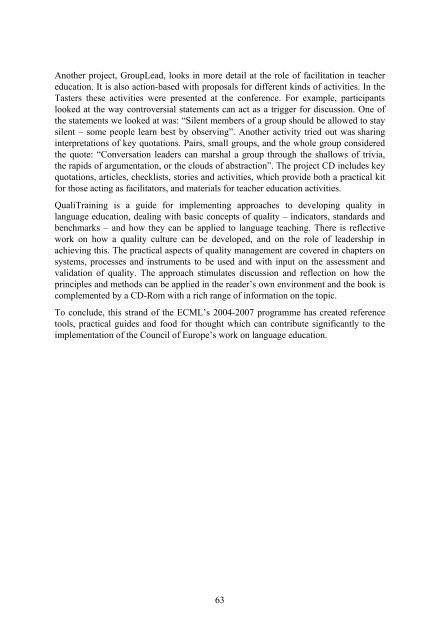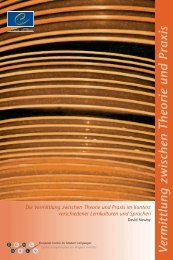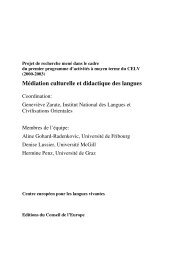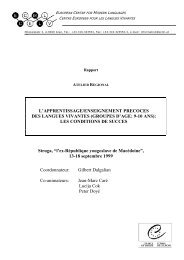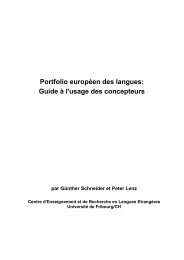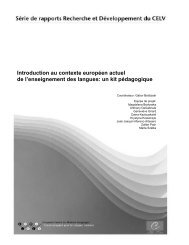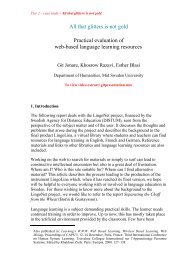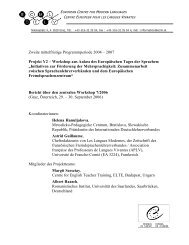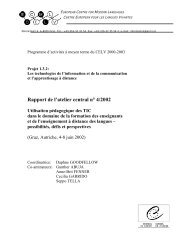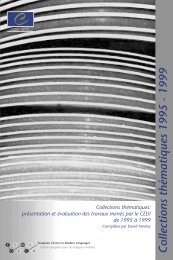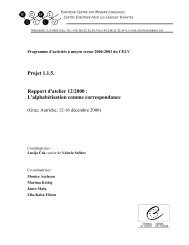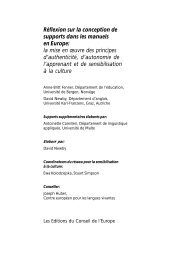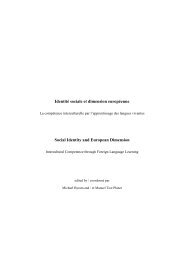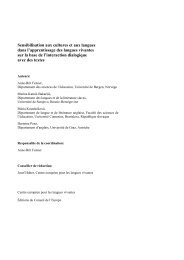cohesion - European Centre for Modern Languages
cohesion - European Centre for Modern Languages
cohesion - European Centre for Modern Languages
Create successful ePaper yourself
Turn your PDF publications into a flip-book with our unique Google optimized e-Paper software.
Another project, GroupLead, looks in more detail at the role of facilitation in teacher<br />
education. It is also action-based with proposals <strong>for</strong> different kinds of activities. In the<br />
Tasters these activities were presented at the conference. For example, participants<br />
looked at the way controversial statements can act as a trigger <strong>for</strong> discussion. One of<br />
the statements we looked at was: “Silent members of a group should be allowed to stay<br />
silent – some people learn best by observing”. Another activity tried out was sharing<br />
interpretations of key quotations. Pairs, small groups, and the whole group considered<br />
the quote: “Conversation leaders can marshal a group through the shallows of trivia,<br />
the rapids of argumentation, or the clouds of abstraction”. The project CD includes key<br />
quotations, articles, checklists, stories and activities, which provide both a practical kit<br />
<strong>for</strong> those acting as facilitators, and materials <strong>for</strong> teacher education activities.<br />
QualiTraining is a guide <strong>for</strong> implementing approaches to developing quality in<br />
language education, dealing with basic concepts of quality – indicators, standards and<br />
benchmarks – and how they can be applied to language teaching. There is reflective<br />
work on how a quality culture can be developed, and on the role of leadership in<br />
achieving this. The practical aspects of quality management are covered in chapters on<br />
systems, processes and instruments to be used and with input on the assessment and<br />
validation of quality. The approach stimulates discussion and reflection on how the<br />
principles and methods can be applied in the reader’s own environment and the book is<br />
complemented by a CD-Rom with a rich range of in<strong>for</strong>mation on the topic.<br />
To conclude, this strand of the ECML’s 2004-2007 programme has created reference<br />
tools, practical guides and food <strong>for</strong> thought which can contribute significantly to the<br />
implementation of the Council of Europe’s work on language education.<br />
63


